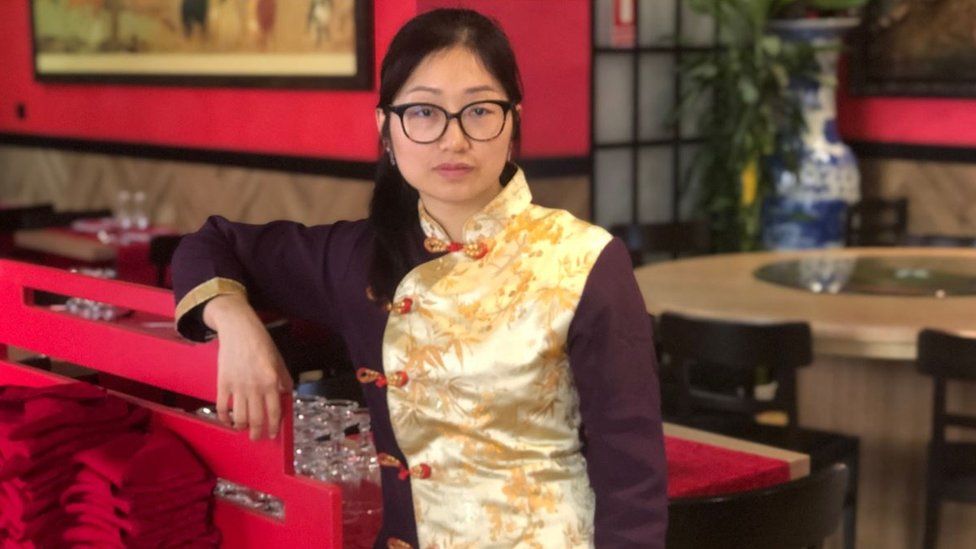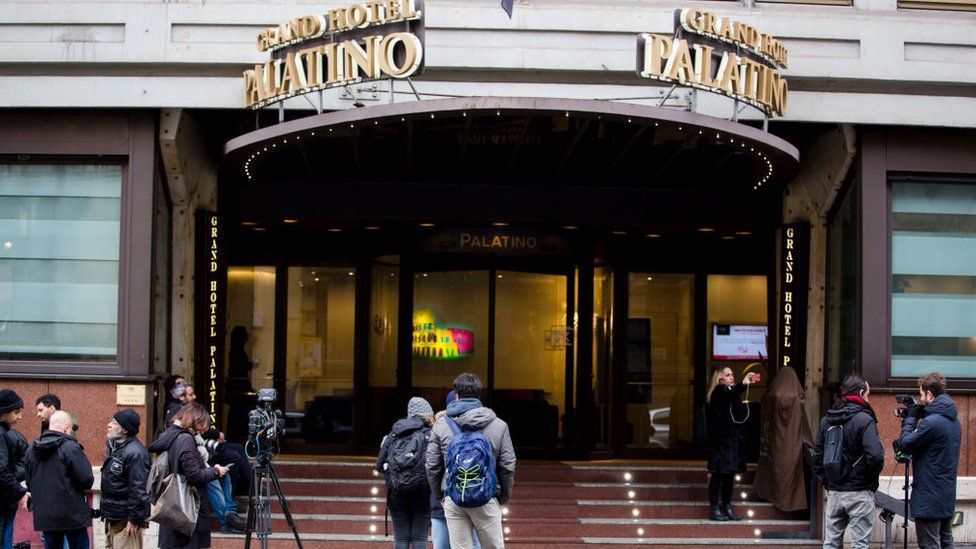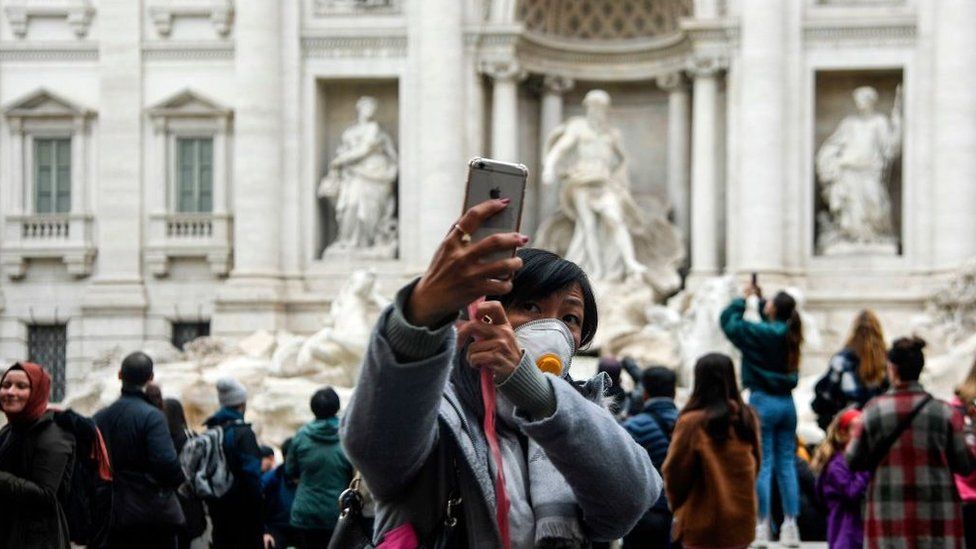In Italy and elsewhere, panic is spreading much faster than the coronavirus itself. Chinese businesses are empty, shopkeepers are shutting down and Chinese nationals are being targeted.
This article is more than 1 year old
By Mark Lowen
BBC Rome correspondent
Veronica Li points to the bills piling up at her Chinese restaurant close to the Colosseum.
"Usually 50 or 60 people come here for dinner," she says, "but last Saturday there were two. I've already had to let go of the three staff helping my husband and me. If it goes on like this, I'll have to close next month."
In Italy and elsewhere, panic is spreading much faster than the coronavirus itself. Chinese businesses are empty, shopkeepers are shutting down and Chinese nationals are being targeted.
- At a bar beside the Trevi fountain, a notice was put up banning customers from China.
- A music school in Rome told East Asian students not to attend classes due to incidents of racism.
- Four governors of northern Italian regions called for children returning from trips to China not to attend school for 14 days.
The incidents have prompted condemnation from the Italian authorities.
Prime Minister Giuseppe Conte reprimanded the regional governors, telling them that they were not competent to make such a call and that nothing justified such fear.
Yet his government's declaration of a six-month state of emergency, following two cases of coronavirus in Italy, is the first such decision due to health reasons in the country's history - and has increased alarm.
Worries mounted further when 6,000 cruise ship passengers were stopped from disembarking for hours at a port near Rome due to a suspected case of the virus on board. Tests proved negative - but rumours flew quickly.
Italy has banned all flights to and from China and placed 56 Italian nationals returning from Wuhan in quarantine: measures echoed by many other governments and widely seen as a proportionate response.
But it's when that reaction filters down to the streets that it can mix with xenophobia and become toxic.
Human rights organisation Amnesty International has decried a "shameful wave of Sinophobia" caused by "fake news, irresponsible statements by political leaders, incomprehensible decisions by local governors and the obsessive focus of the media on coronavirus… this is a country ready to hate".
Some 300,000 Chinese nationals live in Italy and five million Chinese tourists visit every year, pouring much-needed money into the stagnant Italian economy.
So the government in Rome is walking a tightrope: reassure its citizens, while not scaring off Chinese investment or the important relationship with Beijing.
A hundred metres from Veronica Li's restaurant is the Hotel Palatino, where the two Chinese tourists who contracted coronavirus were staying.
The manager refused to talk - but staff spoke of a "quieter season". Several cancellations have been reported.
Veronica, who has been in Italy for 21 years, has asked the landlord to drop the monthly rent of €8,500 (£7,200; $9,380) - but to no avail.
Her daughter says she is being bullied at school. "She didn't want to go," Veronica says, "but I said 'if you stay at home, they'll think you're sick with the virus.'"
As we speak, two Chinese tourists come into the restaurant, asking to use the bathroom. They had been turned away from everywhere else they had tried.



